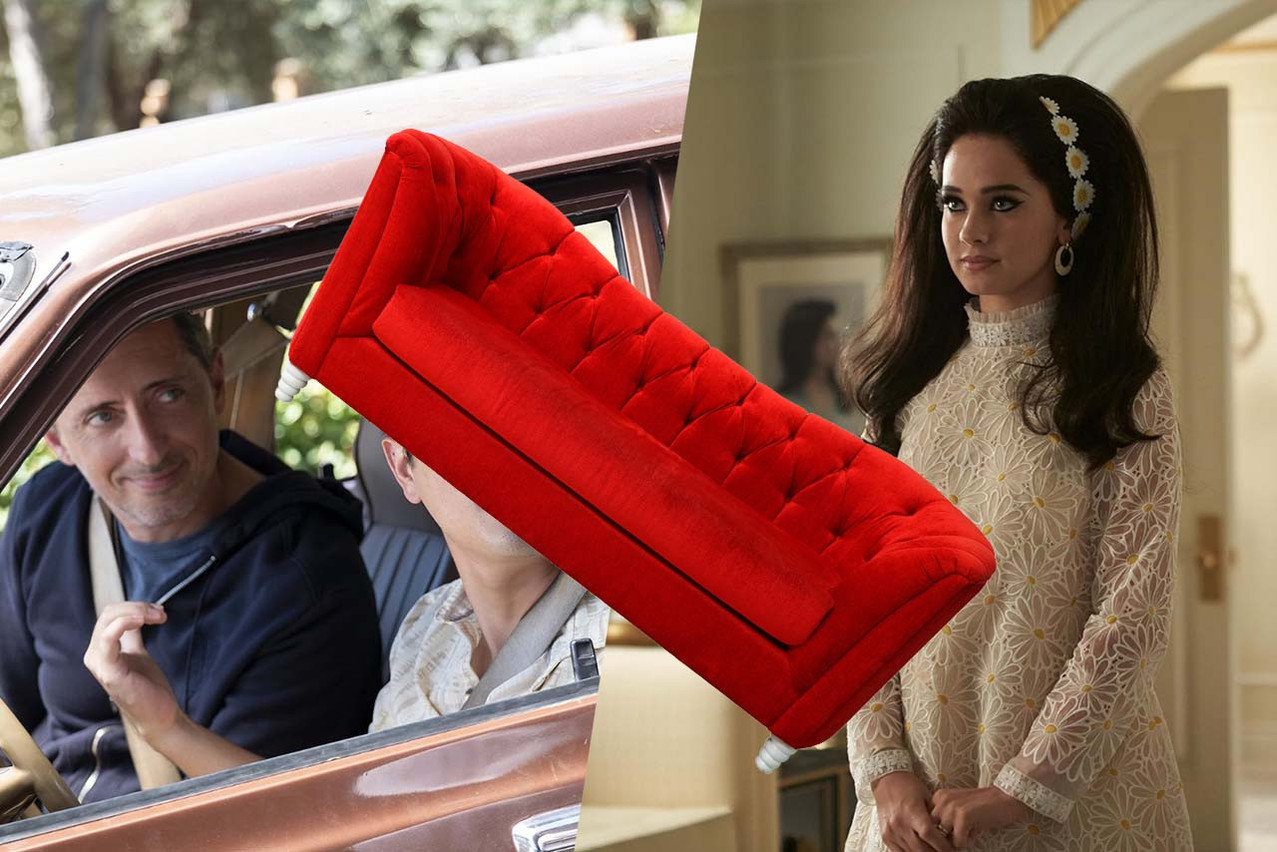Priscilla (2023)
Type of movie: Biopic about Priscilla, wife of Elvis Presley.
A little less conversation: A movie where meaning comes from atmosphere as much as from dialogue.
Coppola other movies to try: Lost In Translation, Marie Antoinette, The Virgin Suicides.
Point of view: you’re the fourteen-year-old girl that America’s most heart-throbby rock star has (from limitless alternatives) chosen--and not, sorry, based on anything obvious that you did or said--as his love interest. What do you feel? Confusion? Giddiness? Joy? Anxiety?
This is the in-every-sense intoxicating situation in which Priscilla finds herself, and the film’s entire rub is, subsequently, to suggest (by not suggesting) how she feels about it. Most of this genre’s ilk--A Star Is Born, Walk The Line, etc.--engenders character by provoking emotional extremities via the highs (the flush of celebrity, the spoils of wealth) and lows (the inevitable drug abuse, the shadow of fame) of stardom and stardom-by-proxy, but Priscilla goes hard the opposite way: Priscilla isn’t provoked into doing much of anything.
Certainly, she is happy when Elvis takes a liking to her, and snaps angrily when he is boorish, but these reactions are always muted, pointedly a vibe-serving directorial instruction rather than a claim that this was Priscilla-the-real’s way. The softness in her line delivery (for God’s sake, look alive, Priscilla: you have a hot, famous boyfriend!) is echoed in the overall quietness of the movie itself. And also in the plot, in which the scenes don’t accumulate story on a granular level: a quarrel in bed will jump to the entourage celebrating a career milestone will jump to an awkward man-leaves-wife departure on the tour bus. These will all exist inside the same mood-realm but won’t, taken together, create the kind of narrative trajectory that allows resolution-by-action.
We are consequently unable to embrace much individualism in Priscilla, which is disorienting as a character methodology and feels, at least initially, like a weakness: you cannot champion somebody whose behaviour is passive to the point of anonymity. This could ostensibly work well against the antagonistic backdrop of Elvis, the ultimate need-no-introduction mononym, except his doings are largely happening in the periphery (in no way is this a movie that celebrates Graceland or rockabilly or even music in particular).
That leaves us with anonymity offset by periphery, which ends up a little too subtlety-smothered for me. Don’t get me wrong: the film remains coherent; you understand that atmosphere is being depicted over and above a stark character. And I half-believe that an emergent meaning is there for the taking… maybe just (please forgive me) if there were a little more action.
Huge in France (2019)
Type of show: True dramedy. I laughed, I cared.
The pitch: Famous French comedian Gad Elmaleh moves to LA to reconnect with his estranged son and ex-wife, but (surprise!) the American public neither knows nor cares about his offshore celebrity.
Thou shalt not regard-and-discard: The funniest character’s storyline only hits in episode two, so if you’re hesitating after the first… don’t give up!
Likeability is the lynchpin for these kinds of shows, i.e. those in which a comedian--playing a loosely fictionalised version of themselves--constructs a world ideal for an hour of their own stage-strutting. It’s an intensely self-involved project, and thus easy to turn on the comedian if, as I say, you don’t like them.
An actor on a script, meanwhile, is subject to other rules: watching George Costanza has nothing to do with Jason Alexander, whose independence from George exonerates him from all George-doing; when you watch George, you see George. But (keeping Seinfeld-wards) the eponymous Jerry Seinfeld has a harder job because he is straddling his own fictive world, and if that world or anything in it dips (fortunately it rarely does) we are looking at the face--the real-world face--responsible.
“Likeability” is, of course, conceptually nebulous and subjective in the extreme, but that’s what Gad Elmaleh is up against in Huge in France. He isn’t a charmingly bad actor the way Jerry Seinfeld is, nor does he rip into himself very Larry-Davidly (hello Curb fans), but instead he walks another line: doses of self-directed fun-poking are offset by a surprisingly compelling sincerity.
The gag, particularly in early episodes, is how nonplussed Americans are by Gad’s apparent mega-celebrity in France (we’re talking hot-women-throwing-themselves-at-you status), and the riffs are good: in the trailer he’s already waving a YouTube montage of himself at LAX’s Homeland Security. The comedy soon graduates to true absurdism, as two straight-laced secondary characters are made to double (and triple, and quadruple) down on their unfunny MOs: one dreams of a modelling career, the other an acting career. Gad--espousing a true European perspective on American ambition--cannot comprehend the ferocity of either, but proceeds, without ever gaining that understanding, to empathise with one and exploit the other. What results is a tangle of dramedic threads: the absurd storylines get laughs while Gad’s ironic distance to his antagonists brings depth to his character… and then the whole party goes to France and it flips inside out.
Through it all, I still can’t reasonably defend my claim that Gad is likeable, but he is. I think catching a whiff of genuineness is central to it, and Gad cuts against the cultural flashpoint of American ambition with such a blasé raising of eyebrows that it just feels--even though I could hardly know this for sure--like I’m seeing Gad-the-real.
